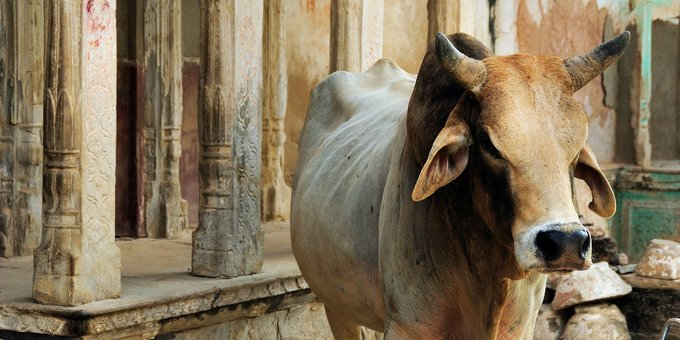Researchers at the Ben-Gurion University of the Negev (BGU) have discovered, for the first time, a method to regulate the microbiome of cattle. This could play an important role in the inhibition of methane production in them, which in turn can facilitate a major reduction of greenhouse gasses.
The findings of the study were published recently in Nature Communications. "Now that we know we can influence the microbiome development, we can use this knowledge to modulate microbiome composition to lower the environmental impact of methane from cows by guiding them to our desired outcomes," said Prof. Itzhak Mizrahi, lead author of the study.
An Unexplored Area
The animal microbiome is a scientifically unexplored area. It protects against germs, breaks down food to release energy, and produces vitamins and exerts great control over many aspects of animal and human physical systems. Microbes are introduced at birth and produce a unique microbiome that evolves over time.

Mizrahi and his group have been conducting a three-year experiment with 50 cows divided into two groups. One group gave birth naturally, and the other through cesarean section. That difference was enough to change the microbiome development and composition microbiome of the cows from each group.
Developing An Algorithm
This finding enabled Mizrahi's team together with Prof. Eran Halperin's group at UCLA to develop an algorithm that predicts the microbiome development and how it will evolve over time based on its present composition.
"Now that we know we can influence the microbiome development, we can use this knowledge to modulate microbiome composition to lower the environmental impact of methane from cows by guiding them to our desired outcomes," Mizrahi says.
Prof. Mizrahi has investigated the microbiome of cows, fish and other species to address world issues shaped by climate change. Reducing methane emissions from cows will reduce global warming. Engineering healthier fish, which is another of Mizrahi's projects, is especially important as the oceans empty of fish and aquaculture becomes the major source of seafood.
(With inputs from agencies)









